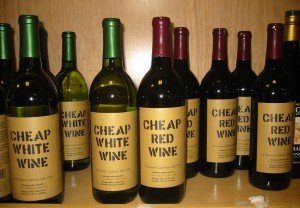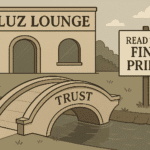 by Doug Frost, Master of Wine / Master Sommelier, friend and partner
by Doug Frost, Master of Wine / Master Sommelier, friend and partner
Points are Pointless
The 2009 Bordeaux futures campaign has just ended: the longest and most drawn-out in history. Prices, to put it mildly, have never been higher. Today the last estate released its prices for its 2009 wines: Ausone is available for more than a thousand dollars a bottle. But act now! This is only the first tranche (or release); subsequent tranches may be higher still.
Oh, and one other note, that Ausone price applies only to importers. You’ll have to pay the markup from the importer, as well as another tariff for the wholesaler. The retailer needs a cut too. In all, you’ll be lucky to pay less than seventeen hundred dollars for that twenty-five-ounce bottle
The 2008 Ausone cost considerably less upon release: $850 or so. The 2007 was even more reasonable: $650. Why all this irrational exuberance? I’m not suggesting that this market will collapse like certain other irrationally exuberant markets in the recent past. But some wine reviewers, American writer Robert Parker amongst them, have decreed that 2009 is the vintage of a lifetime, or in Parker’s words, “2009 may turn out to be the finest vintage I have tasted in 32 years of covering Bordeaux.”
Others have been less sanguine, calling it the “vintage of the century”. Emil Casteja, long-time owner of Chateau Batailley, was asked which vintage was the vintage of the last century. He smiled and said, “Oh, but there are soooo many.” It seems rather early for the rest of this new century to be so quickly dismissed, but who knows?
Robert Parker does. His prognostications have helped set prices for decades. At least within the Bordeaux community I visited last week, there was little doubt that this is indeed a great vintage but that Parker’s enthusiasm has generated unheard of prices, and that these prices are based upon the perceived interest of millionaires (and billionaires) everywhere, not least in Hong Kong.
His reviews of the 2009 wines have included far more wines exceeding 90 points than those under that high water mark, as well as nineteen potential 100-point wines. Sure his reviews gave a range of these wines from, say, 97-100 points, but once you start throwing around the 100-point score, well, let’s get all irrational and exuberant, eh, chappie
To put this in perspective, that’s more than all the 100-point scores Parker handed out to all American wines between the years of 1985 and 2005. Even the much-heralded (at the time) 2003 vintage saw only four wines, Pavie, Montrose, Latour and Ausone, touch the perfect score. And it might be instructive to know that many of the 2003 wines haven’t turned out so well, at least not to this writer and others of similar mindset.
But the 2009’s are not likely to suffer the same fate as so many of the 2003’s, some of which are already tasting hard and even dried out. The 2009’s, by contrast, are generous and fruit-laden. Where the 2003’s were the product of one of the hottest years on record, with their fresh fruit and refreshing tartness baked right out of them, the 2009’s retain both fruit and acidity.
Some, like Rauzan Segla, carry a remarkable amount of crispness, perhaps too much for those who prefer their Bordeaux rich and brooding. The heralded champion for some I spoke with is Lafite Rothschild (Parker: 96-100); it’s exciting, dense and represents one of the top wines of any recent Bordeaux vintage, without a doubt.
But is it worth the price? And what separates it from Parker’s 18 other potential 100-point wines? Indeed, there’s nothing in those numbers to provide any answer. For Parker and others of his palate, 100-point wines are “perfect”, which for his palate means incredibly powerful and intense. But what if “perfect” for someone else is delicate and elegant?
When confronted with the criticism that the 100-point system is inherently flawed and subjective, Parker has repeatedly stated that the numbers are merely shorthand. “Read my reviews,” he has always said.
Doing so is informative but perhaps not in the manner intended. The Beausejour-Duffau has “massive concentration, power and intensity”; the Bellevue Mondotte has “massive concentration and huge tannins”, Branon is “hugely concentrated, intense, dense”; Cheval Blanc is “staggeringly concentrated, very full-bodied and powerful”
Throughout the notes, mocha and chocolate abound: mocha describes heavily toasted barrels and chocolate is more typical in overripe Barossa Shiraz than in young Bordeaux. He regards wines with 14% alcohol as balanced, but betrays his tendencies towards opulence when he enthuses over wines nearly approaching 15% alcohol. Perhaps those sorts of numbers don’t alarm some people, but I was weaned on Bordeaux in an era when even 13-percent levels were rarely breached.
Readers should reasonably conclude that Parker prefers wines that are concentrated, dark, rich and intense. Indeed, it seems that the dominant critics value wine only for its intensity, and have little interest in a wine’s balance or ability to age, or at least in its ability to have flavors other than intense ones.
That remains Parker’s right, just as it is for any other critic whose mouth, nose and body incline them to love intensity. But not everybody likes caviar, not everyone thinks foie gras is good and some people think Brussel sprouts are disgusting, unless they’re drenched in butter and smothered in bacon. People’s food preferences shouldn’t be deemed right, or wrong.
And so it is with wine. Some like it sweet, some like it cold, some like it young and some like it old. The great flaw of the 100-point system is that it fails to reflect that reasonable people differ about the foods they like and don’t like and they will certainly do the same with wine. The 100-point system tells you what the critic likes and dislikes but offers scant guidance as to whether a given consumer will like it, unless that consumer eats the same foods and drinks the same wines as that critic. Even that might be a stretch.
Some 25 years ago, I was standing next to Parker after a long day of tasting and one of the members of the party (who apparently possessed fewer spitting skills than the rest of us) was ranting at Parker that the 100-point system was a fraud.
Parker was patient and respectful and said, “well, the 100-point system helps me sell magazines, and I’m in the business of selling magazines.” At the time I thought, fair enough.
But are people really intending to buy a magazine, or do they simply need guidance? They need to know what a particular wine tastes and smells like, how it will age, when and how to drink it, and that information doesn’t need to lay hidden in the pages of a journal beneath myriad numbers and ciphers.
Moreover, wine information shouldn’t come from only one source. Wine as the province of one solitary palate is a sham, no matter how skilled and experienced that palate. Why? Because palates are different. Some like salt and some like sugar. If it’s a light and soft white wine I seek, I should read a review from someone who loves those sorts of wines. If it’s a tangy, earthy red wine that excites me, then I need a reviewer that understands those. And if I’m searching for a rich and powerful youthful Bordeaux (oh, I meant concentrated and intense), I will seek out someone who likes that kind of wine. Lest anyone think that I’m Parker-bashing, I think Parker is a very reliable source of information regarding such wines.
Even more importantly, wines change. Good wine is a living thing; it tastes differently today than it will next month, and those differences will be more obvious a year or a decade from now. Even in the short term, that wine might shift its shape when it’s cold and wintry outside, or when you’re sunburnt and sweaty. The simplest of wines can be stirring at a romantic dinner or at a heartwarming gathering. The best part of wine cannot be accurately deduced from a two or three digit number.
There are many trustworthy palates; you should seek out as many as you can. You should find out their favorites and if you can afford them, you should try them to see if your palate roughly aligns. If they offer no great reviews of affordable wines, you should look elsewhere; great wine is all around, just like good reviewers. But I will offer this warning: if the reviewers insist upon a numerical score, your business and your palate are being taken for a ride. Learn more at www.trustyourtongue.com










I largely agree with what you've said. It's true that there are many trustworthy palates, and consumers are right to look to reviewers for help in sorting out what's good and what's not.
However, most reviewers are in no danger of influencing the price of Bordeaux, and I don't see any harm in using a simple rating scale–1 to 10, 5 stars, whatever–as a way of communicating whether or not you like a particular wine.
Consumers may choose to ignore the rating, and that's fine. But if they find their tastes line up with yours, and see that for the same money they can get either a 5 star wine or a 3 1/2 star one, they know which to choose.
Perfectly succinct and well thought out post. I couldn't agree more. Perhaps the best advice — if one does choose to follow scores (as mentioned in post) — find a reviewer that shares similar preferences, buy some of their higher scored and see how things align.
The problem with the 100-point rating scale is that consumers don't understand the criteria and how the ratings are arrived at. The best thing wine consumers can do for themselves is to learn how to use the 100-point rating scale and rate wine themselves. Then they can "calibrate" their palates with the professional critic whose palate and ratings most closely resemble their own.
Even if we only choose to align ourselves with the critic whose tastes most closely parallel our own, are we insuring that we get wine that we like, or insuring that we limit the expansion of our own palates? While I get some use out of the 100 point scale, I find that cross referencing critic scores is a good thing whenever possible…in order to undermine subjectivity and agendas.
I personally like the UC davis 20 point scale, because it breaks down the points (or partial points) awarded by wine attributes, and although there is still room for subjective influence, it does seem more analytical.
Why, I wonder, is this argument made only regarding wine reviewing? I've seen nothing about the "flaws" in rating movies or restaurants with stars or other symbols. Points are just a way for the reviewer to tell you how much he liked a wine at the time he tasted it, nothing more or less. A point scale is a TOOL, and like any other tool, its value is in how well it is used. If the wine lover uses it to guide himself to wines he might enjoy, great. If he uses it as a crutch because he doesn't trust his own taste, well, not so great but that's what works for him. If he follows Parker's points when he really prefer more subtle wines, then he is using the wrong tool for the job,
Shifting the metaphor to sports, how would you like it if after the ball game, the announcer only told you who won, no score?